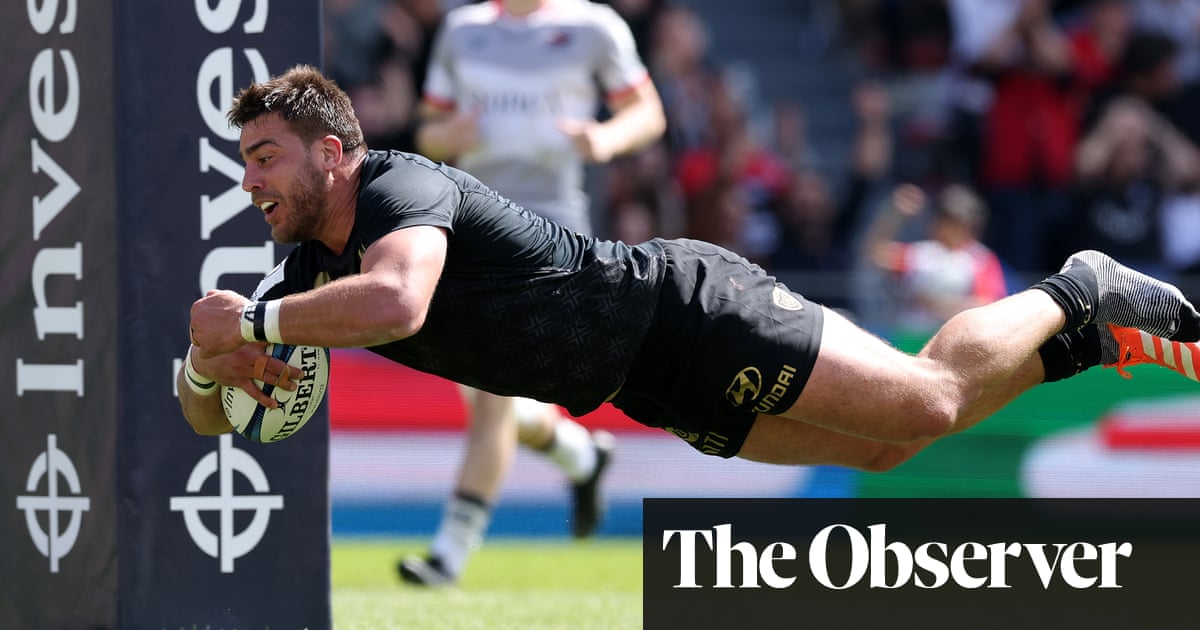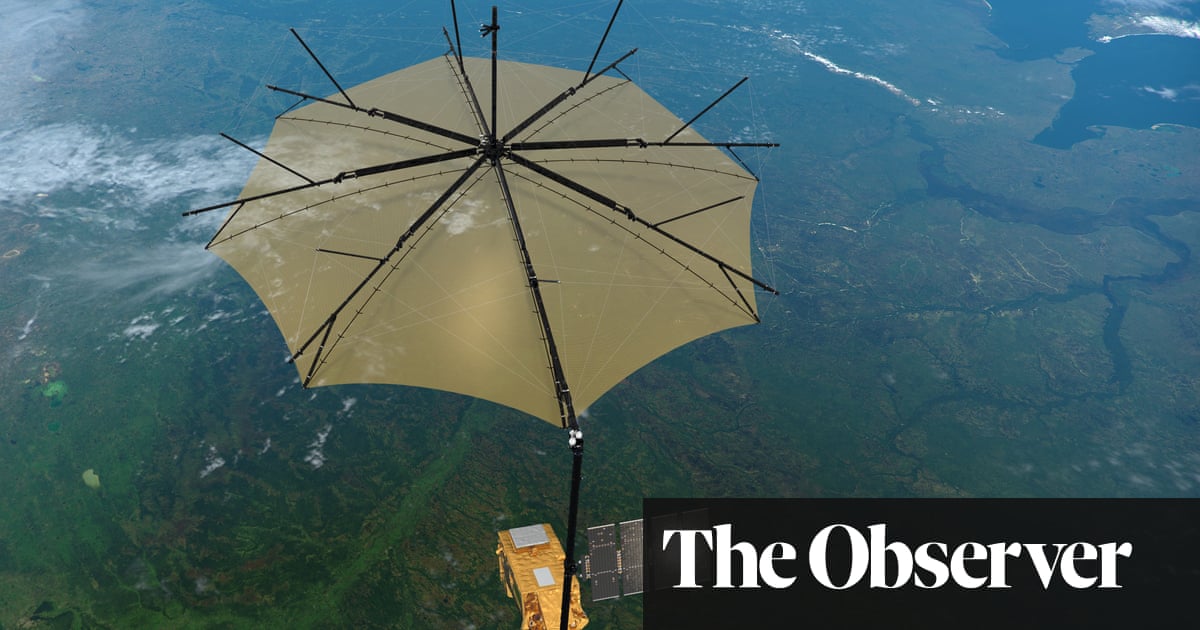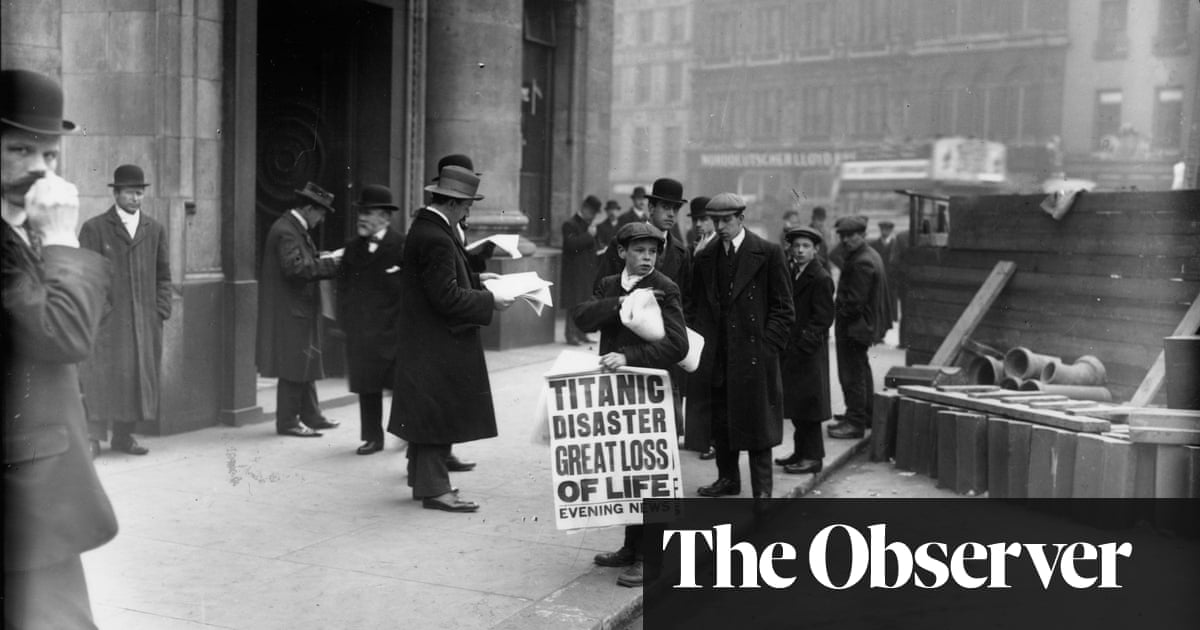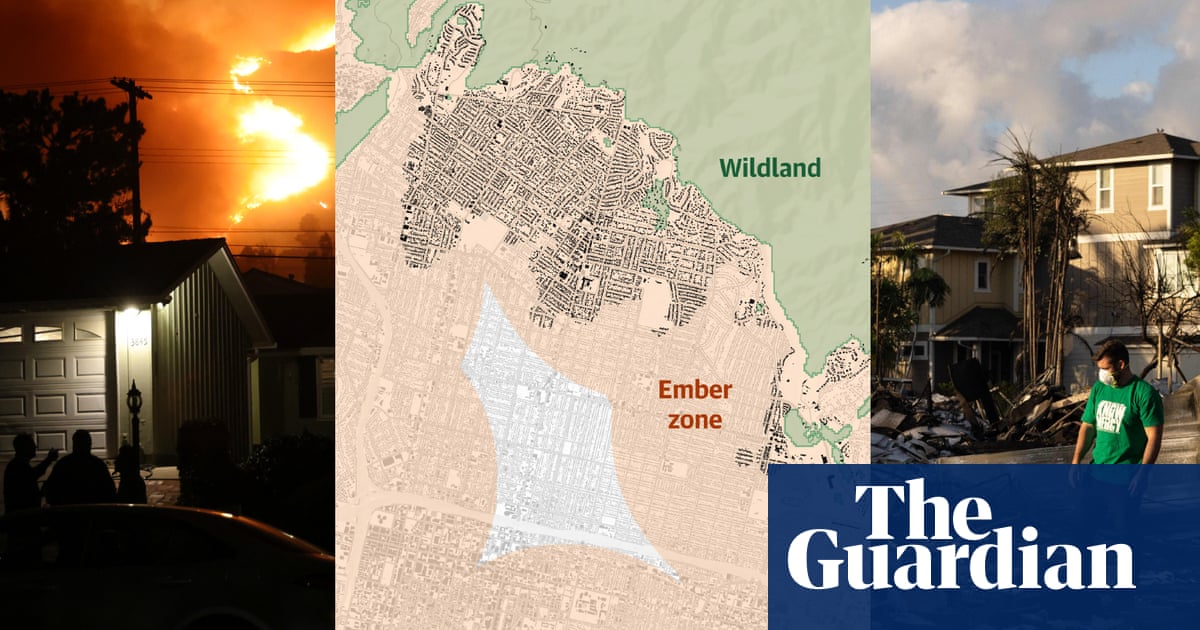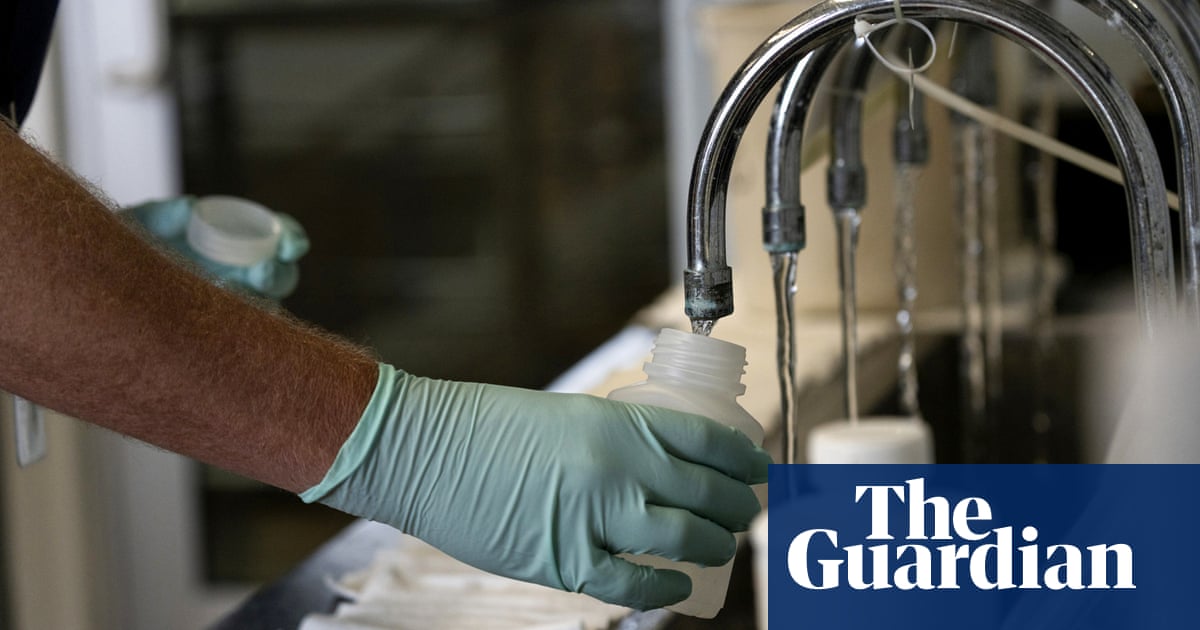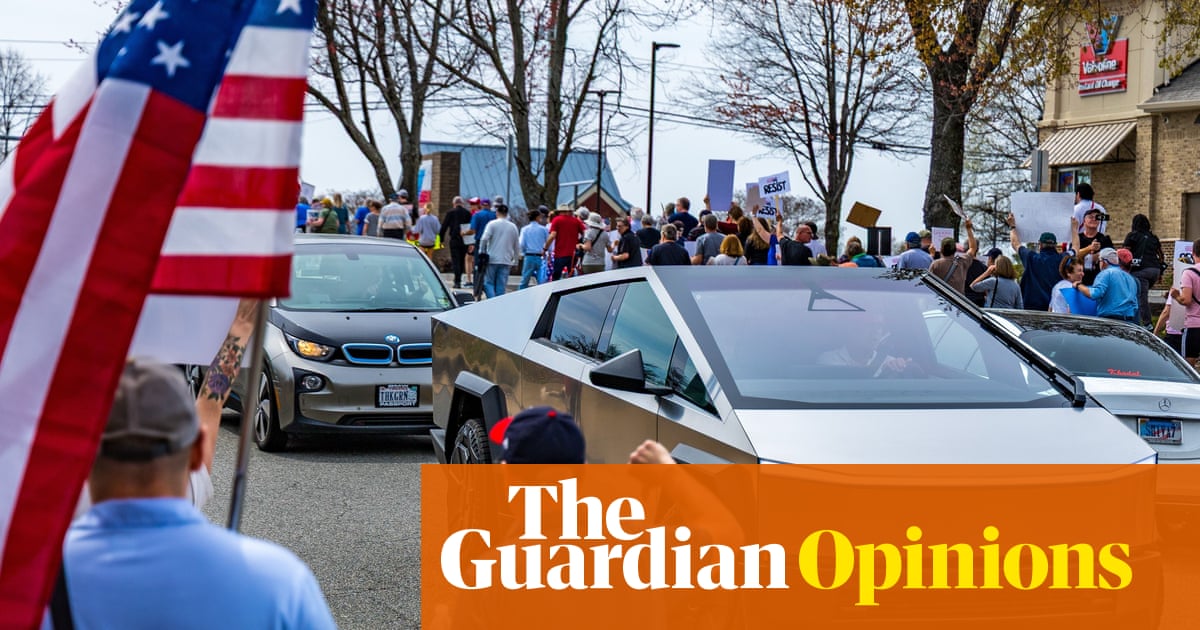When Jonathan Reynolds gathered with officials around the large television screen in his office to watch Donald Trump unleash his global trade war, he knew little more than anyone else about what was to come.
It was Wednesday night and the US president was about to upend a century of global trade with the imposition of sweeping taxes on US imports from around the world.
Moments before Trump sauntered on stage, Reynolds had been told to expect a universal baseline tariff of 10% – but he did not know whether anything else would be imposed on top. The expectation in government was that the UK would be hit with a 20% rate, which the Treasury watchdog had warned could wipe 1% off UK GDP.
As Trump brought out his sandwich board of global tariffs, Reynolds and his team shared the frustration of many viewers across the world – the board kept slipping behind the White House lectern and obscuring the all-important figures next to countries’ names.
It quickly became clear that the UK’s rate was 10%, lower than the 20% rate for the EU – but the same baseline as the US had imposed on countries including Brazil and Afghanistan. Within minutes, Downing Street described this as a “vindication” of Keir Starmer’s approach.
“When we heard it was a flat 10% there was some relief because it could have been so much worse,” one source said. “It also meant that they were true to their word about where we stood. That trust will be really important going forward.”
No 10 has been criticised for “sucking up” to Trump but getting little in return, but government sources argue that the tariff regime could have been substantially more damaging for the UK if they had not worked to develop good relations and put forward their own arguments.
They stress that the US was minded to include VAT – which has a standard rate of 20% and has been much maligned by Trump – in their calculations, but that Starmer made the case against this directly and publicly when he visited the White House in February. “We were able to talk them down,” a source said.
Trump has long been an advocate of tariffs – once describing them as the most beautiful word in the dictionary – and his promise to impose them was a central plank of his presidential election campaign. In anticipation, Downing Street developed a defensive strategy that revolved around building a strong relationship with Trump’s White House – despite clear political differences – and launching talks to strike an economic deal that would secure tariff exemptions.
Trade talks between the UK and US began soon after Trump’s inauguration, before the prime minister visited Washington in February, with the goal of agreeing a relatively narrow deal focused on advanced technologies. Talks intensified before Reynolds’ own visit to meet Howard Lutnick, the US commerce secretary, just over two weeks ago.
UK officials were assured by their US counterparts that they were in a strong position to negotiate a trade deal with Washington. “By then we knew what the faultlines were, and we were broadly there, so we just had some details to thrash out,” an official said.

The two key figures leading the negotiations are Reynolds and Varun Chandra, a corporate strategist turned senior No 10 aide known as the prime minister’s “business whisperer”. Officials have been impressed by how Chandra has navigated the US administration. “He just gets them, and they get him. The talks have been much more corporate in tone than trade negotiations usually are. That’s his world,” one said.
A senior trade department official, Kate Joseph, and Starmer’s economic international affairs adviser, Michael Ellam, have been working behind the scenes at home to get the Whitehall machine ready. Multiple scenarios were drawn up depending on what tariff regime Trump imposed.
Initially, the UK side was hopeful a deal could be done that would secure a carve-out from tariffs before they were announced on 2 April. Government sources cited Trump’s pledge to “be nice” to countries that had balanced trade with the US. “He wants to have this big moment without much nuance,” one official said. “But we’d obviously like some nuance on this.”
All that changed on Thursday 27 March, less than a week before Trump’s announcement, when UK officials were told by US contacts that “world tariff day means *world* tariff day” – and the UK would be included. The British negotiating team understood they would be in the ‘friendly’ camp, but had no idea what that would actually mean. They spent the weekend finalising their scenario planning for all potential outcomes.
after newsletter promotion
Speaking onboard Air Force One last Sunday, Trump told reporters that the tariffs would apply to “all countries, so let’s see what happens”. Stock markets across the globe tumbled. It was all hands on deck. Rachel Reeves, the chancellor, spoke to the US Treasury secretary, Scott Bessent, before telling the cabinet on Tuesday to brace themselves for the tariffs hitting the UK economy.
Ministers redoubled their engagement with businesses: Reynolds held a succession of calls and, hours before Trump spoke on Wednesday, Reeves gathered senior executives from companies including Aston Martin, KPMG, Diageo, Starling Bank and Shell in Downing Street to prepare the ground.
When the announcement came, despite the measure of relief about the 10% rate on the UK, government sources admitted some of the tariff levels imposed – including up to 54% for China – were “terrifying”. There was particular concern over the EU – the UK’s biggest trading partner – being hit with a 20% rate given the inevitable knock-on effects on the British economy.
Starmer hosted business leaders for breakfast on Thursday morning, while Reynolds took to the airwaves tasked with projecting a sense of calm and stability. In the Commons, the trade secretary announced he would take the first step towards retaliation in case the UK and US did not agree a deal.

One official admitted the US was “upending the system”. Starmer said on Thursday that it was “not just a short-term tactical exercise, it is the beginning of a new era” for the world economy. David Lammy, the foreign secretary, went further on Friday, saying he regretted “the return to protectionism in the United States, something that we’ve not seen for nearly a century”.
Insiders hope that once the tariffs come into force on Saturday, Trump’s team will have the bandwidth to return to trade talks with the UK – potentially early next week. These would initially take place remotely but could quickly return to face-to-face. Trump told reporters on Air Force One on Thursday that he was open to negotiating tariffs with countries that offered something “phenomenal”.
At the same time, the prime minister and chancellor are lining up calls with their international counterparts over the weekend to discuss the tariffs and how they plan to respond.
“We have been preparing for all eventualities. The deal that we’ve been discussing with the US is progressing, and we’re working closely with businesses. Nothing is off the table when it comes to acting in our national interest,” said a Downing Street source. “This is a new era that demands we go further and faster on the work we’ve been doing on growth, reform and changing our economy. Every decision we take in coming days and weeks will be guided solely by our national interest.”
Another source said: “Do we wish it wasn’t happening? Yes. Have we said that to them? Yes. This isn’t what we wanted. But they have a very specific worldview and they’re working in what they think is their nation’s best interest. We’re doing the same.”

.png) 10 hours ago
1
10 hours ago
1







